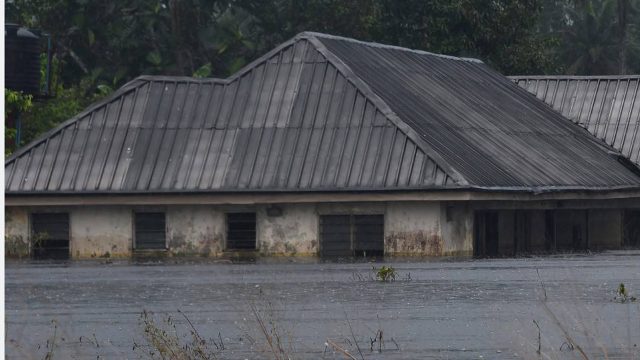
A climate policy the world should emulate
- Climate ChangeInternational News
- No Comment
- 292
Many low-lying areas are under the sea level rise threat, which could make them uninhabitable by 2100. According to the Intergovernmental Panel on Climate Change (IPCC), the world will continue to experience severe climate-related disasters unless global warming is reduced below 2 degrees Celsius, preferably to 1.5. We can confront climate-related disasters, and live safely through climate enactment.
The Inflation Reduction Act (IRA) was passed in the legislature in August; the Act makes a financial commitment to lessen the cost of transitioning into clean energy as well as providing an enabling environment for green jobs. About $370 billion have been budgeted to fight climate change, some of it in the form of tax credits and rebates to help consumers save thousands of dollars on energy-efficient appliances, plug-in vehicles, and renewable electricity for their homes, Coral Davenport reported in New York Times.
The bill targets reducing carbon emissions to 42 per cent as projections place the country to achieve its net-zero targets. It would also invest $391 billion into climate change and energy security, a pathway to make the U.S. energy independent.
Some investment areas in the IRA are $128 billion for renewable energy, $30 billion for nuclear power, $13 billion for electric vehicle incentives, $36 billion for home energy, $37 billion for advanced manufacturing, $32 billion for rural economies, and $3 billion tax incentives for installing carbon capture. It also makes allocation for disadvantaged communities, forestland, farmers, environmental justice, climate-smart agriculture, and decarbonization.
How can other countries emulate this policy?
Achieving and implementing a policy such as IRA requires sound fiscal measures. IRA is a fiscal policy that generates revenue through an increase in tax and proceeds from government initiatives. According to the report, the spending for IRA is derived from a minimum tax of 15 percent on large corporations and a 1 percent excise tax on stock buybacks.
Other areas where the IRA spending is coming from include Internal Revenue Service (IRS) tax enforcement funding; methane fee, Superfun fee, and savings from healthcare initiatives. With $500 billion in IRA spending as estimated and $737 billion in revenues expected over the next ten years, the country will save $237 billion.
Developed countries can emulate this policy by raising levies on fossil fuel proceeds and using the fund to reduce the cost of transitioning into clean energy and investment. Similarly, developing countries can utilize climate funds as an incentive to lower the cost of organizations switching to green operations.
Why is this policy important for other countries?
IRA provides a climate resilience framework, which could help countries to curtail the disastrous impact and risk of losing lives, properties, and settlements to hazardous effects. According to National Centers for Environmental Information report, the U.S. has lost more than $1 billion to 15 weather/climate disaster events from January 1, 2022, to October 11, 2022. In Lagos, Nigeria, we experience flooding often as the Lagos Wall, a sea defence to protect Lagos Atlantic City and Victoria Island alone could not stop the perennial flooding.
The signing of the IRA highlighted how finances would be generated through tax incentives and tax credit relief. On the other hand, provisions are made for vulnerable and disadvantaged communities suffering the effect of emissions. Also, residential energy cost is reduced to adopt and improve home energy efficiency.
It also captures improvements in electricity, heating, ventilation, air conditioning, transportation, aviation, and industrialization.
For a climate resilience framework, countries must prioritize sustainable policies to mitigate the effect of climate change. In making these policies, climate adaptation mechanisms and preventive actions must be key regarding provisions that can be implemented to help communities.
The signing of the IRA will address the climate change effect by opening up the U.S. to transition opportunities. This is somewhat of a template for developing countries. Emulating the U.S.’s IRA will accelerate other countries’ efforts and aid the world’s commitments to confront the climate crisis.
Ogunnigbo, environmental consultant, wrote on Climate and Environment; Ogunyale is a data and climate journalist.
By Femi Ogunnigbo and Kehinde Ogunyale
https://guardian.ng/opinion/a-climate-policy-the-world-should-emulate/


